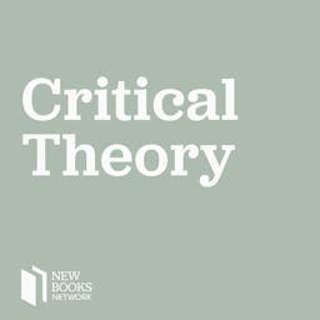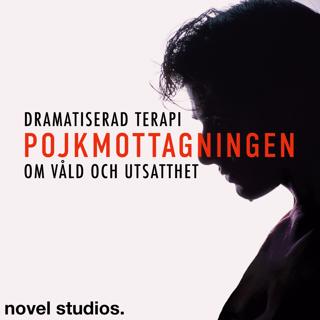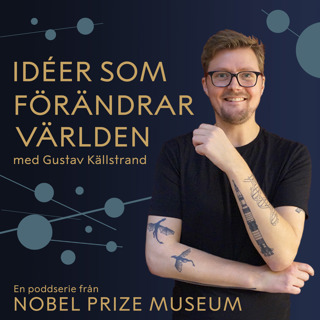
Laurie Parsons, "Carbon Colonialism: How Rich Countries Export Climate Breakdown" (Manchester UP, 2023)
Climate change is devastating the planet, and globalisation is hiding it. Laurie Parsons's book Carbon Colonialism: How Rich Countries Export Climate Breakdown (Manchester UP, 2023) opens our eyes. Around the world, leading economies are announcing significant progress on climate change. World leaders are queuing up to proclaim their commitment to tackling the climate crisis, pointing to data that shows the progress they have made. Yet the atmosphere is still warming at a record rate, with devastating effects on poverty and precarity in the world's most vulnerable communities. Are we being deceived? Outsourcing climate breakdown explores the murky practices of exporting a country's environmental impact. A world in which corporations and countries are allowed to maintain a clean, green image while landfills in the world's poorest countries continue to expand and droughts and floods intensify under the auspices of globalisation, deregulation and economic growth. Taking a wide-ranging, culturally engaged approach to the topic, the book shows how this is notonly a technical problem, but a problem of cultural and political systems and structures - from nationalism to economic logic - deeply embedded in our society. Learn more about your ad choices. Visit megaphone.fm/adchoices Support our show by becoming a premium member! https://newbooksnetwork.supportingcast.fm/critical-theory
18 Jan 44min

Ryan Donovan, "Broadway Bodies: A Critical History of Conformity" (Oxford UP, 2023)
Broadway has body issues. What is a Broadway Body? Broadway has long preserved the ideology of the "Broadway Body": the hyper-fit, exceptionally able, triple-threat performer who represents how Broadway musicals favor certain kinds of bodies. Casting is always a political act, situated within a power structure that gives preference to the Broadway Body. In Broadway Bodies: A Critical History of Conformity (Oxford UP, 2023), author Ryan Donovan explores how ability, sexuality, and size intersect with gender, race, and ethnicity in casting and performance. To understand these intersectional relationships, he poses a series of questions: Why did A Chorus Line, a show that sought to individuate dancers, inevitably make dancers indistinguishable? How does the use of fat suits in musicals like Dreamgirls and Hairspray stigmatize fatness? What were the political implications of casting two straight actors as the gay couple in La Cage aux Folles in 1983? How did deaf actors change the sound of musicals in Deaf West’s Broadway revivals? Whose bodies does Broadway cast and whose does it cast aside? In answering these questions, Broadway Bodies tells a history of Broadway’s inclusion of various forms of embodied difference while revealing its simultaneous ambivalence toward non-conforming bodies. Learn more about your ad choices. Visit megaphone.fm/adchoices Support our show by becoming a premium member! https://newbooksnetwork.supportingcast.fm/critical-theory
18 Jan 1h 13min

Daniel Wyche, "The Care of the Self and the Care of the Other: From Spiritual Exercises to Political Transformation" (Columbia UP, 2025)
In The Care of the Self and the Care of the Other: From Spiritual Exercises to Political Transformation (Columbia UP, 2025), Daniel Wyche examines the political implications of what he calls practices of ethical self-change. These include Pierre Hadot’s notion of “spiritual exercises”; what the French sociologist of labor Georges Friedmann terms “interior effort”; Michel Foucault’s ethics of the “care of the self”; Martin Luther King Jr.’s understanding of “self-purification” as integral to direct action; and Audre Lorde’s claim that caring for herself constitutes a form of “political warfare.” Each reading furnishes Wyche with a lexicon of concepts and practices that he develops with great care toward a critical account of the self in relation to others.Daniel Louis Wyche is a Senior Scholar with the Columbia Center for Contemporary Critical Thought.Nathan H. Phillips is an independent scholar working out of South Bend, Indiana. Learn more about your ad choices. Visit megaphone.fm/adchoices Support our show by becoming a premium member! https://newbooksnetwork.supportingcast.fm/critical-theory
17 Jan 1h 16min

Mark Christian Thompson, "Phenomenal Blackness: Black Power, Philosophy, and Theory" (U Chicago Press, 2022)
Mark Christian Thompson's book, Phenomenal Blackness: Black Power, Philosophy, and Theory (University of Chicago Press, 2022) examines the changing interdisciplinary investments of key mid-century African American writers and thinkers, showing how their investments in sociology and anthropology gave way to a growing interest in German philosophy and critical theory by the 1960s. Thompson analyzes this shift in intellectual focus across the post-war decades, pinpointing its clearest expression in Amiri Baraka's writings on jazz and blues, in which he insisted on philosophy as the critical means by which to grasp African American expressive culture. More sociologically oriented thinkers, such as W. E. B. Du Bois, had understood blackness as a singular set of socio-historical characteristics. In contrast, writers such as Baraka, James Baldwin, Angela Y. Davis, Eldridge Cleaver, and Malcolm X were variously drawn to notions of an African essence, an ontology of Black being. For them, the work of Adorno, Habermas, Marcuse, and German thinkers was a vital resource, allowing for continued cultural-materialist analysis while accommodating the hermeneutical aspects of African American religious thought. Mark Christian Thompson argues that these efforts to reimagine Black singularity led to a phenomenological understanding of blackness--a "Black aesthetic dimension" wherein aspirational models for Black liberation might emerge. Brittney Edmonds is an Assistant Professor of Afro-American Studies at UW-Madison. I specialize in 20th and 21st century African American Literature and Culture with a special interest in Black Humor Studies. Read more about my work at brittneymichelleedmonds.com. Learn more about your ad choices. Visit megaphone.fm/adchoices Support our show by becoming a premium member! https://newbooksnetwork.supportingcast.fm/critical-theory
17 Jan 1h 2min

Di Wu et. al, eds., "China As Context: Anthropology, Post-globalisation and the Neglect of China" (Manchester UP, 2025)
A provocative collaborative project, China as Context challenges the marginalization of Chinese-grounded ideas in academia, arguing that neglecting China distorts our understanding of global complexities. Through diverse ethnographic perspectives, this volume repositions China, urging a holistic, post-global approach to the social sciences amid shifting global dynamics. Decades-old calls to recognise China’s significance for anthropological theory and the social sciences are more urgent than ever. Yet, Chinese-grounded ideas remain marginal, with China often seen as a distant “Other” rather than a source of widely applicable theory. Drawing on East Asian postcolonial scholarship, this volume argues that without taking China seriously as a knowledge producer and a key agent in a post-global world, social scientists risk misinterpreting the global present. As Western globalisation wanes and anthropology reassesses the relationship between ethnography and theory, we show how “China” must be understood as an ordinary, integral context for research worldwide. China as Context is edited by Di Wu, Andrea Pia, and Ed Pulford. Di Wu is an Anthropologist and Associate Professorial Fellow at the Institute of Anthropology, Zhejiang University, the People’s Republic of China. Ed Pulford is an Anthropologist and Senior Lecturer in Chinese Studies at the University of Manchester. Yadong Li is an anthropologist-in-training. He is a PhD candidate of Socio-cultural Anthropology at Tulane University. More details about his scholarship and research interests can be found here. Learn more about your ad choices. Visit megaphone.fm/adchoices Support our show by becoming a premium member! https://newbooksnetwork.supportingcast.fm/critical-theory
16 Jan 1h 19min

Helen Graham, "Deconstituting Museums: Participation’s Affective Work" (UCL Press, 2024)
What is the future of museums? In Deconstituting Museums: Participation’s Affective Work Helen Graham, an Associate Professor in School of Fine Art, History of Art and Cultural Studies at the University of Leeds, considers the current state of the sector and stresses the need for significant change. Drawing on both professional reflections and academic analysis, the book introduces the concept of the museum constitution as a key site for struggle within the institution. It shows the challenge of making participation meaningful, and the scale of transformation needed to reframe museums’ central ideas and activities. Essential reading for both academics and museum professionals, as well as audiences, the book is available open access here Learn more about your ad choices. Visit megaphone.fm/adchoices Support our show by becoming a premium member! https://newbooksnetwork.supportingcast.fm/critical-theory
16 Jan 45min

Kerry Gottlich, "From Frontiers to Borders: How Colonial Technicians Created Modern Territoriality" (Cambridge UP, 2025)
How did modern territoriality emerge and what are its consequences? From Frontiers to Borders: How Colonial Technicians Created Modern Territoriality (Cambridge UP, 2025) examines these key questions with a unique global perspective. Kerry Goettlich argues that linear boundaries are products of particular colonial encounters, rather than being essentially an intra-European practice artificially imposed on colonized regions. He reconceptualizes modern territoriality as a phenomenon separate from sovereignty and the state, based on expert practices of delimitation and demarcation. Its history stems from the social production of expertise oriented towards these practices. Employing both primary and secondary sources, From Frontiers to Borders examines how this expertise emerged in settler colonies in North America and in British India – cases which illuminate a range of different types of colonial rule and influence. It also explores some of the consequences of the globalization of modern territoriality, exposing the colonial origins of Boundary Studies, and the impact of boundary experts on the Paris Peace Conference of 1919–20. Dr Kerry Goettlich is an International Relations scholar whose work draws on original historical research to reframe theoretical debates about international politics, particularly around issues of territory and borders. His current work deals with the history of the legal and moral prohibition of territorial conquest. He is an associate professor at City St George's, University of London. Morteza Hajizadeh is a Ph.D. graduate in English from the University of Auckland in New Zealand. His research interests are Cultural Studies; Critical Theory; Environmental History; Medieval (Intellectual) History; Gothic Studies; 18th and 19th Century British Literature. YouTube Channel: here Learn more about your ad choices. Visit megaphone.fm/adchoices Support our show by becoming a premium member! https://newbooksnetwork.supportingcast.fm/critical-theory
14 Jan 1h 14min

Angie Hobbs, "Why Plato Matters Now" (Bloomsbury, 2025)
Does Plato matter? An ancient philosopher whose work has inspired and informed countless thinkers and poets across the centuries, his ideas are no longer taught as widely as they once were. But, as Angie Hobbs argues in this clear-sighted book Why Plato Matters Now (Bloomsbury, 2025), that is a mistake.If we want to understand the world we live in – from democracy, autocracy and fake news to celebrity, cancel culture and what money can and cannot do – there is no better place to start than Plato. Exploring the intersection between the ancient and the modern, Professor Hobbs shows how Plato can help us address key questions concerning the nature of a flourishing life and community, healthcare, love and friendship, heroism, reality, art and myth-making. She also shows us how Plato's adaptation of the Socratic method and dialogue form can enable us to deal with contested issues more constructively.Plato's methodology, arguments, ideas and vivid images are explained with a clarity suitable both for readers familiar with his work and for those approaching Plato for the first time. This book shows why Plato really matters, now more than ever. Angie Hobbs is emerita Professor of the Public Understanding of Philosophy at the University of Sheffield. She gained a degree in Classics and a PhD in Ancient Philosophy at the University of Cambridge, and her chief interests are in ancient philosophy and literature, and ethics and political theory from classical thought to the present, and she has published widely in these areas, including Plato and the Hero. She works in a number of policy sectors, and contributes regularly to media around the world, including many appearances on In Our Time on Radio 4; she has spoken at the World Economic Forum at Davos, the Athens Democracy Forum, the Houses of Parliament, the Scottish Parliament and Westminster Abbey and been the guest on Desert Island Discs and Private Passions. Website here Morteza Hajizadeh is a Ph.D. graduate in English from the University of Auckland in New Zealand. His research interests are Cultural Studies; Critical Theory; Environmental History; Medieval (Intellectual) History; Gothic Studies; 18th and 19th Century British Literature. YouTube Channel: here Learn more about your ad choices. Visit megaphone.fm/adchoices Support our show by becoming a premium member! https://newbooksnetwork.supportingcast.fm/critical-theory
14 Jan 1h 18min





















